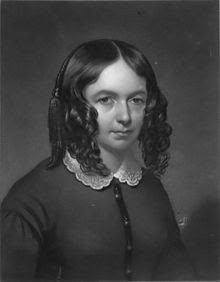 |
| Sir Walter Scott |
In the late 18th, early 19th Century
"romanticism" swept across Europe. It was an artistic and
philosophical movement that stressed individualism, subjectivity, and emotion.
Generally, romantic era poetry praised the individual, giving voice to the
common man, his life, and nature. Nature, in fact, proves to be a very
prevalent theme in romantic era poetry.
The style the poetry stressed was everyday language, along
with a free form presentation.
While romance and love can be a subject of poetry during
this time, the "romanticism" movement has little in common with what
we consider romantic today. These poets tended to distrust the human world and
invited the reader to believe in the poet.
Several romantic era poets include:
William Wadsworth
Percy Bysshe Shelley
Henry Wadsworth Longfellow
Edgar Allen Poe
Mary Shelley
Emily Dickinson
Sir Walter Scott.
Enjoy this poem from Sir Walter Scott:
An Hour With Thee
An hour with thee! When earliest day
Dapples with gold the eastern gray,
Oh, what can frame my mind to bear
The toil and turmoil, cark and care,
New griefs, which coming hours unfold,
And sad remembrance of the old?
One hour with thee.
One hour with thee! When burning June
Waves his red flag at pitch of noon;
What shall repay the faithful swain,
His labor on the sultry plain;
And, more than cave or sheltering bough,
Cool feverish blood and throbbing brow?
One hour with thee.
One hour with thee! When sun is set,
Oh, what can teach me to forget
The thankless labors of the day;
The hopes, the wishes, flung away;
The increasing wants, and lessening gains,
The master's pride, who scorns my pains?
One hour with thee.
Question: Do you have a favorite Romantic Era Poet? I hope you and your muse find inspiration for the poet in you. If you'd like to share a "romantic" poem, I'd love to read it. Just put in your comments.
Smiles
Steph




















